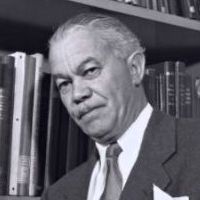 The archive of the renowned architect Paul Revere Williams (1894–1980) has been jointly acquired by the University of Southern California School of Architecture and the Getty Research Institute. The archive has been meticulously cared for by Karen Elyse Hudson, Williams’ granddaughter.
The archive of the renowned architect Paul Revere Williams (1894–1980) has been jointly acquired by the University of Southern California School of Architecture and the Getty Research Institute. The archive has been meticulously cared for by Karen Elyse Hudson, Williams’ granddaughter.
Paul Revere Williams was the most significant African American architect of the 20th century, with especially strong ties to Southern California and the city of Los Angeles. Documenting the entirety of Williams’ career, from his early residential commissions during Los Angeles’ housing boom of the 1920s to landmark mid-century civic structures, the archive includes approximately 35,000 plans, 10,000 original drawings, blueprints and project diazotypes, hand-colored renderings, vintage photographs, correspondence, and other materials.
Williams was orphaned at age 4. He studied at the Beaux Arts Institute in New York and the University of Southern California. In 1922, he opened his own architectural firm in Los Angeles. Aware of the racial sensitivities of the time, Williams learned to draw upside down so that he would not have to lean over the backs of White clients when he was showing or revising architectural plans. He toured construction sites with hands clasped behind his back because he was not sure every person would want to shake a Black man’s hand.
During his career, Williams designed homes for Lucille Ball and Desi Arnaz, Gary Grant, Anthony Quinn, Zsa-Zsa Gabor, Lon Cheny, Tyrone Power, and Frank Sinatra. He designed the Los Angeles County Courthouse, the Beverly Hills Hilton, and terminals at Los Angeles International Airport.
“Paul Revere Williams is one of USC’s most important alumni. We are honored to accept this archive and synthesize his legacy with the forward-looking vision of the School to produce impactful design and scholarship on the historical and contemporary evolution of the modern city,” said Milton S. F. Curry, dean of the USC School of Architecture. “The work contained in this archive tells many stories. It contains the creative expressions of an architect working across many different constituencies in a socially complicated time. It also contains evidence of stunning aesthetic innovations that reimagined the space and program of public housing, hotels, and residential design and civic space.”













Not mentioned is the fact that he also designed the main symbol of the Los Angeles International Airport, i.e., the spaceship-like structure housing a restaurant that stands at the center of the Airport and that is widely recognized as the central architectural feature of LAX. The man was a genius, on par (in my view) with Frank Lloyd Wright. It galls me to see him pigeon-holed and thereby diminished by the reference, “the most significant African-American architect of the 20th century,” instead of as “one of the most significant architects of the 20th century.” (“Mr. Charlie” just can’t help himself, can he?)